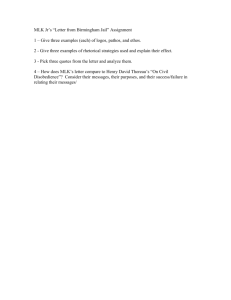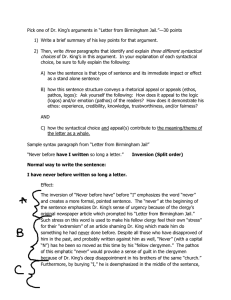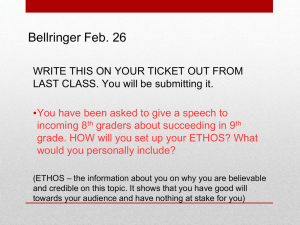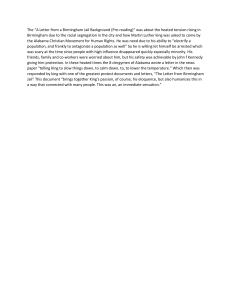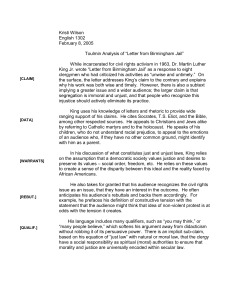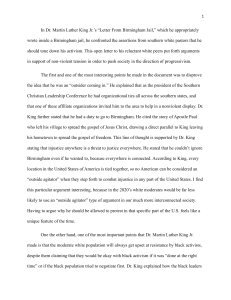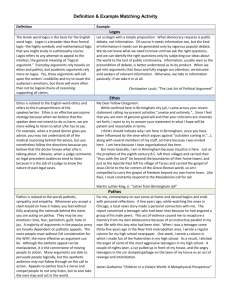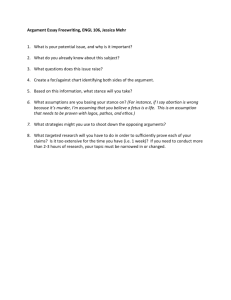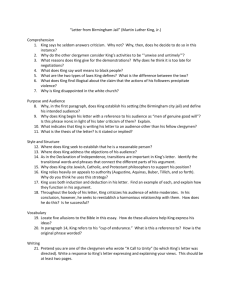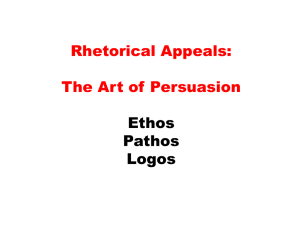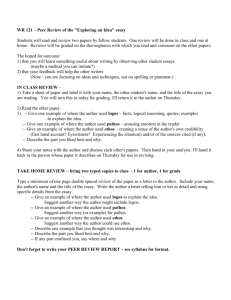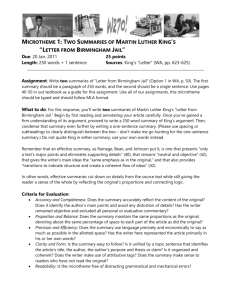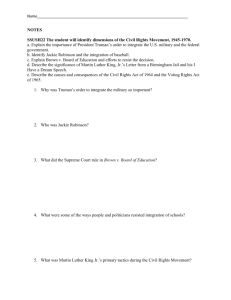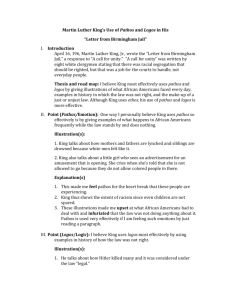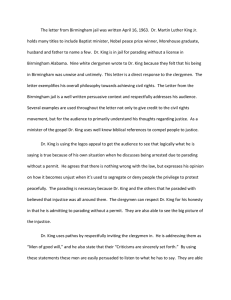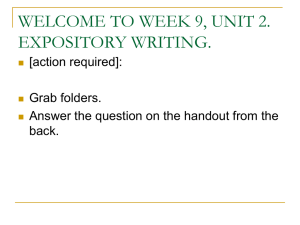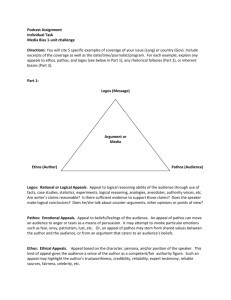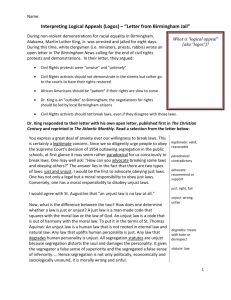Assignment #1: Argument Analysis, with Gladwell
advertisement
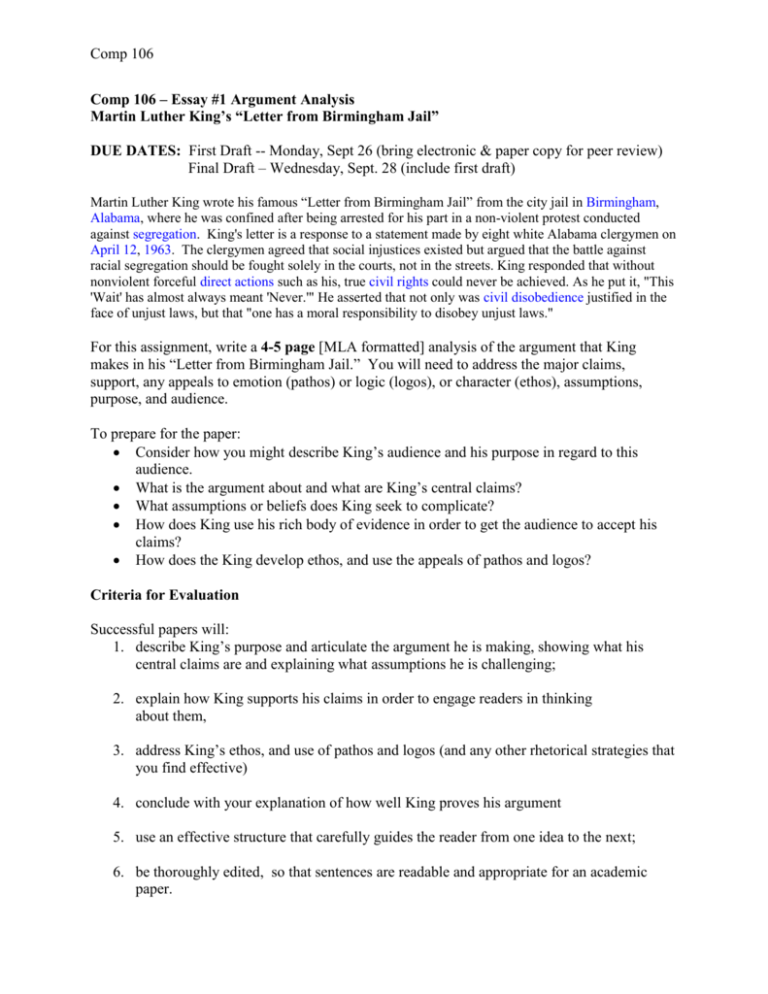
Comp 106 Comp 106 – Essay #1 Argument Analysis Martin Luther King’s “Letter from Birmingham Jail” DUE DATES: First Draft -- Monday, Sept 26 (bring electronic & paper copy for peer review) Final Draft – Wednesday, Sept. 28 (include first draft) Martin Luther King wrote his famous “Letter from Birmingham Jail” from the city jail in Birmingham, Alabama, where he was confined after being arrested for his part in a non-violent protest conducted against segregation. King's letter is a response to a statement made by eight white Alabama clergymen on April 12, 1963. The clergymen agreed that social injustices existed but argued that the battle against racial segregation should be fought solely in the courts, not in the streets. King responded that without nonviolent forceful direct actions such as his, true civil rights could never be achieved. As he put it, "This 'Wait' has almost always meant 'Never.'" He asserted that not only was civil disobedience justified in the face of unjust laws, but that "one has a moral responsibility to disobey unjust laws." For this assignment, write a 4-5 page [MLA formatted] analysis of the argument that King makes in his “Letter from Birmingham Jail.” You will need to address the major claims, support, any appeals to emotion (pathos) or logic (logos), or character (ethos), assumptions, purpose, and audience. To prepare for the paper: Consider how you might describe King’s audience and his purpose in regard to this audience. What is the argument about and what are King’s central claims? What assumptions or beliefs does King seek to complicate? How does King use his rich body of evidence in order to get the audience to accept his claims? How does the King develop ethos, and use the appeals of pathos and logos? Criteria for Evaluation Successful papers will: 1. describe King’s purpose and articulate the argument he is making, showing what his central claims are and explaining what assumptions he is challenging; 2. explain how King supports his claims in order to engage readers in thinking about them, 3. address King’s ethos, and use of pathos and logos (and any other rhetorical strategies that you find effective) 4. conclude with your explanation of how well King proves his argument 5. use an effective structure that carefully guides the reader from one idea to the next; 6. be thoroughly edited, so that sentences are readable and appropriate for an academic paper.
